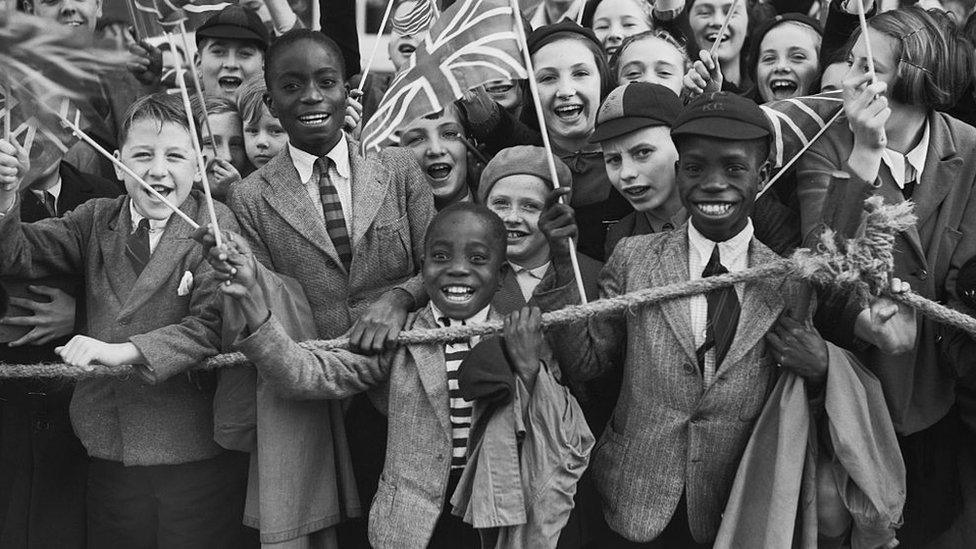Government poised to announce membership of race commission
- Published
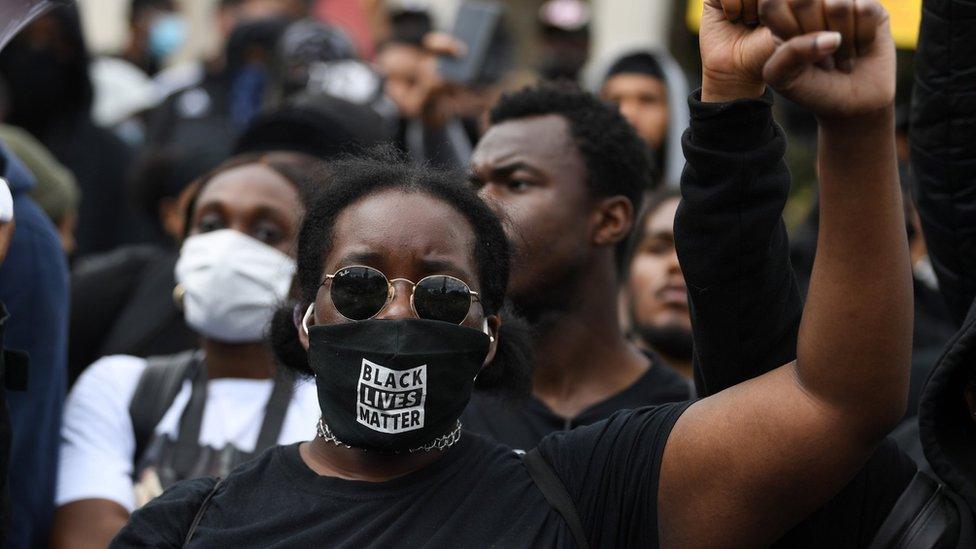
It's been a month since Boris Johnson announced the creation of a new commission on race and ethnic disparities, following widespread anti-racism protests triggered by the killing of George Floyd in the United States.
The government now appears set to announce its membership.
Back in June, the prime minister said that although there was much more to be done to tackle racism, he wanted to "change the narrative" to highlight stories of success among those from ethnic minority backgrounds and "stop a sense of victimisation and discrimination".
Downing Street said the commission would look at areas such as health, education and criminal justice but also "wider inequalities" such as issues faced by working-class white boys.
Number 10 has since been working to establish the precise terms of reference and appoint members to the commission, which is due to report to the prime minister before the end of the year.
But it's understood that a number of prominent figures in the black community - who did not want to be identified publicly - have sought to distance themselves from the process.
Sources said that some who'd been reluctant to pursue discussions with the government regarded the commission as "toxic" and a way for ministers to "play for time" or "pay lip service" to the idea of race equality.
A government spokesman said: "It is untrue to suggest that a number of prominent Black individuals have rejected the opportunity to be a part of the commission.
"We have had a number of prominent Black individuals come forward to express interest in being involved. We are concluding what has been a thorough selection process."
The Coalition of Race Equality Organisations (CORE) - which brings together a number of groups working in the field - warned in a statement, external published last week, that the Chair and commissioners "must be representative and secure widespread support from BAME communities and involve people who are prepared to analyse and challenge systemic racism".
CORE called for the government to implement the recommendations of a series of recent reviews into racial inequalities instead, claiming there was widespread anger and cynicism over past inaction.

What work has already been done on racial inequality in the UK?
The Race Disparity Audit, published by then Prime Minister Theresa May in 2017, showed inequalities between ethnicities in educational attainment, health, employment and treatment by police and the courts
The 2017 Lammy Review found evidence of bias and discrimination against people from ethnic minority backgrounds in the justice system in England and Wales
Also in 2017, the McGregor-Smith Review of race in the workplace found people from black and minority ethnic backgrounds were still disadvantaged at work and faced lower employment rates than their white counterparts
An independent review of the Windrush scandal, published in March, found the Home Office showed "institutional ignorance and thoughtlessness towards the issue of race"

The government has said the new commission will be supported by the Race Disparity Unit, part of the Cabinet Office, which collects and analyses government data on the experiences of people from different ethnic backgrounds.
Its work will be "complemented" by the Windrush Working Group, formed last month to bring together community leaders and government departments to oversee the response to the Windrush scandal.
- Published25 June 2020
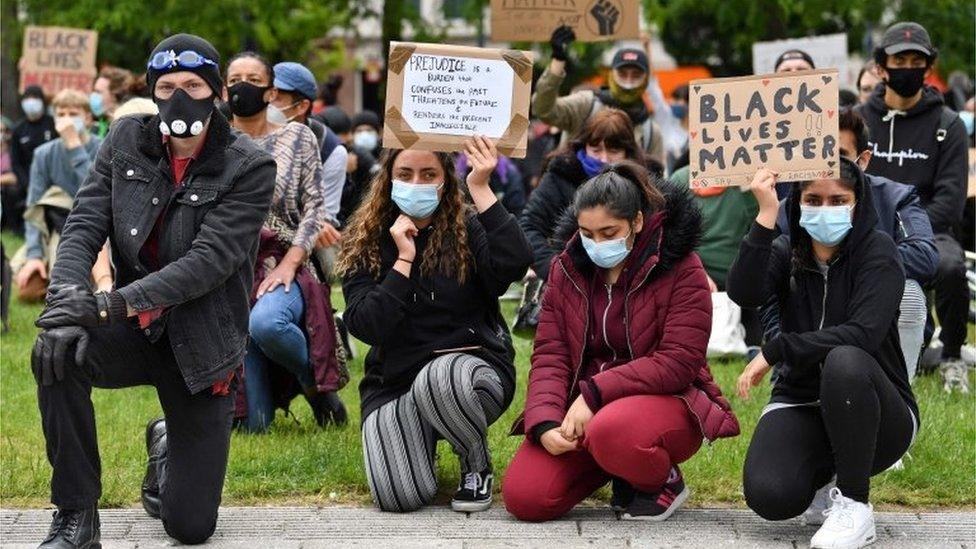
- Published15 June 2020
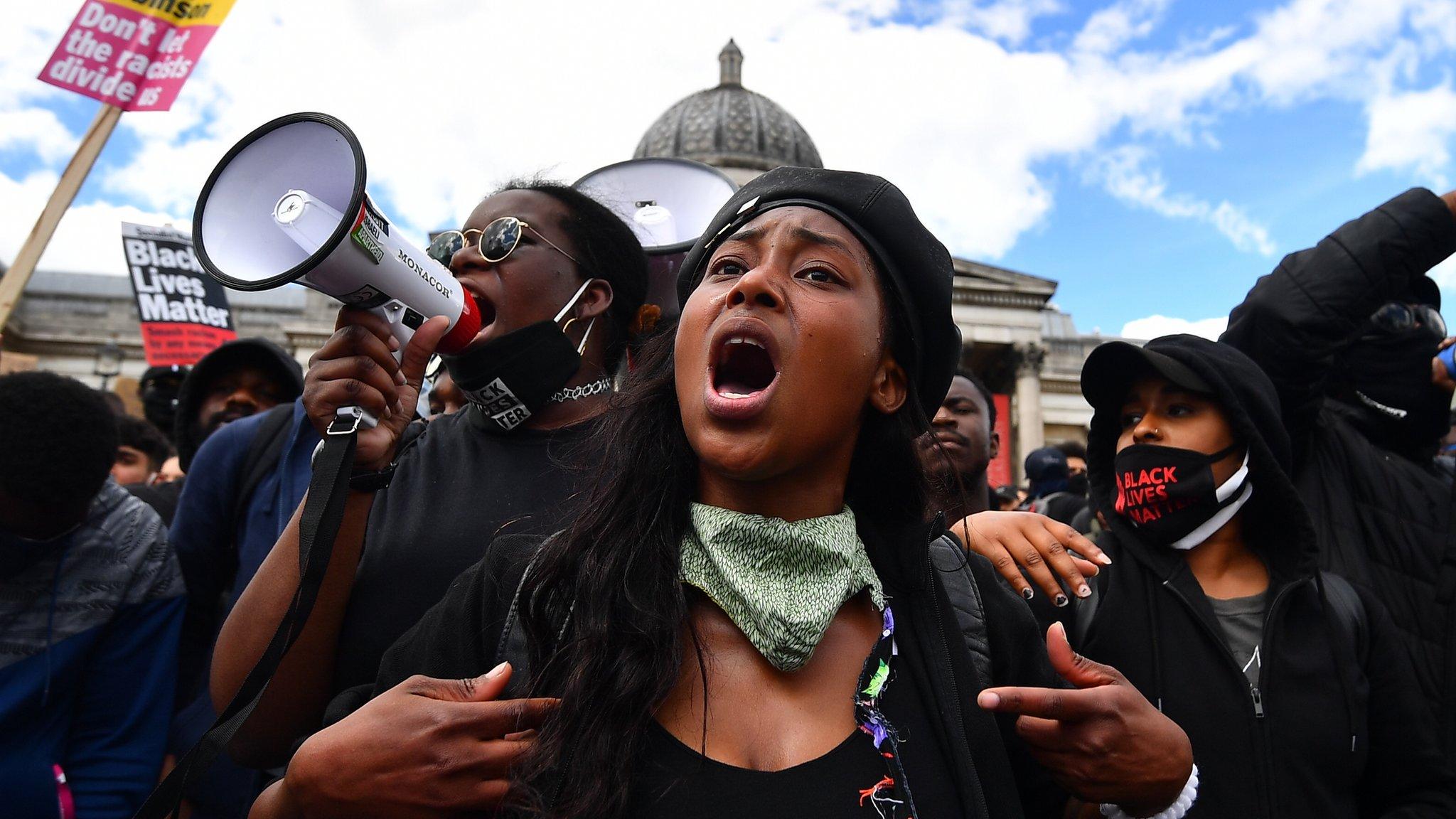
- Published13 June 2020
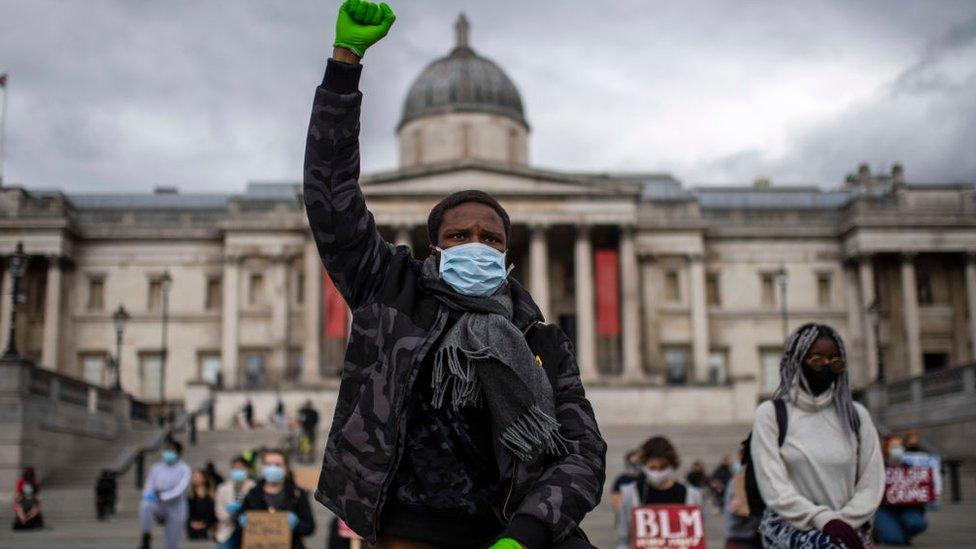
- Published25 June 2020
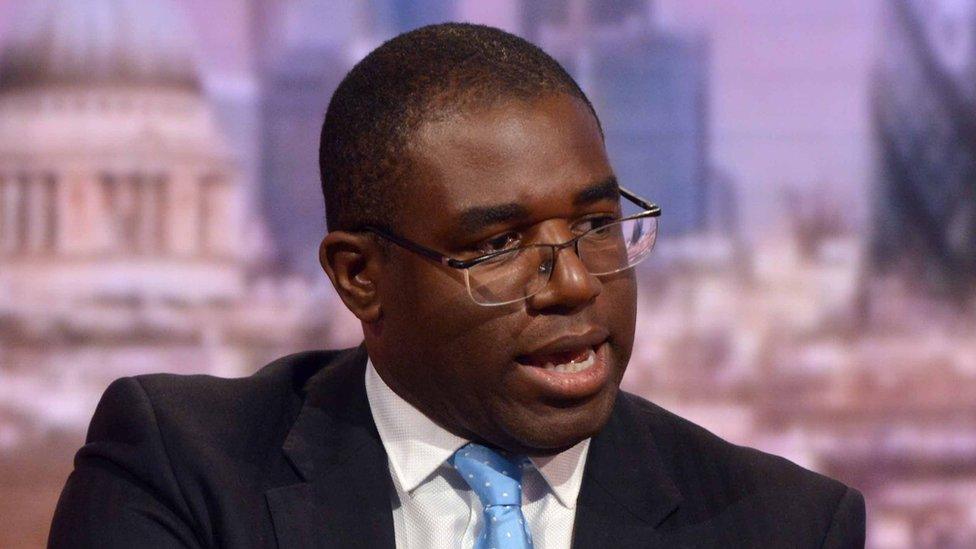
- Published9 June 2020
